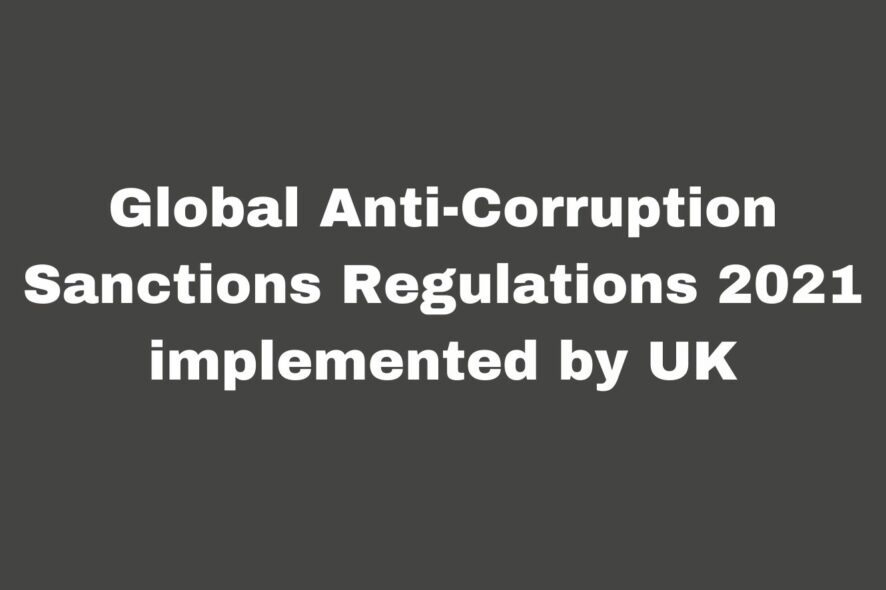UK has implemented its new Global Anti-Corruption Sanctions Regulations,2021 on April 27, 2021. The regulations seek to enhance its existing Global Human Rights Sanctions Regime, which had come into force in July 2020. The purpose of the regime is to prevent and combat governmental corruption, by stopping those involved from entering and channeling money through the UK. The regime has been implemented under the Sanctions and Anti-Money Laundering Act 2018 (SAMLA), which established the legal framework for the UK to introduce new sanctions regimes post-Brexit. The salient features of the regime are as follows:
- The Regulations enable the UK Foreign Secretary to impose asset freezes and travel bans on designated individuals and entities linked to certain corrupt activities and criminalises the breach of those sanctions within the UK, as well as any breach by any UK individual or UK entity wherever located.
- The Regulations provide that it is a criminal offence to intentionally participate in any activities knowing that their object or effect is against the prohibitions imposed by the Regulations.
- Any breach of the financial prohibitions in the Regulations are offences that carry a maximum sentence of seven years imprisonment or a fine, or both.
- “Relevant firms” shall make a report if they know or suspect that a person is a designated person or has committed an offence under the Regulations. The Regulations also gives power to the relevant authority to request information as well as production of documents. Failing to comply with reporting or information obligations carries a maximum sentence of six months imprisonment or a fine, or both.
- Limited exceptions to the prohibitions are provided in the Regulations such as, in certain situations, the crediting of a frozen account by a relevant institution, where funds are transferred to the account in discharge of an obligation which arose prior to the recipient becoming a designated person, and acts done for the purposes of national security or prevention of serious crime.
*Tanvi Singh, Editorial Assistant has put this story together.






